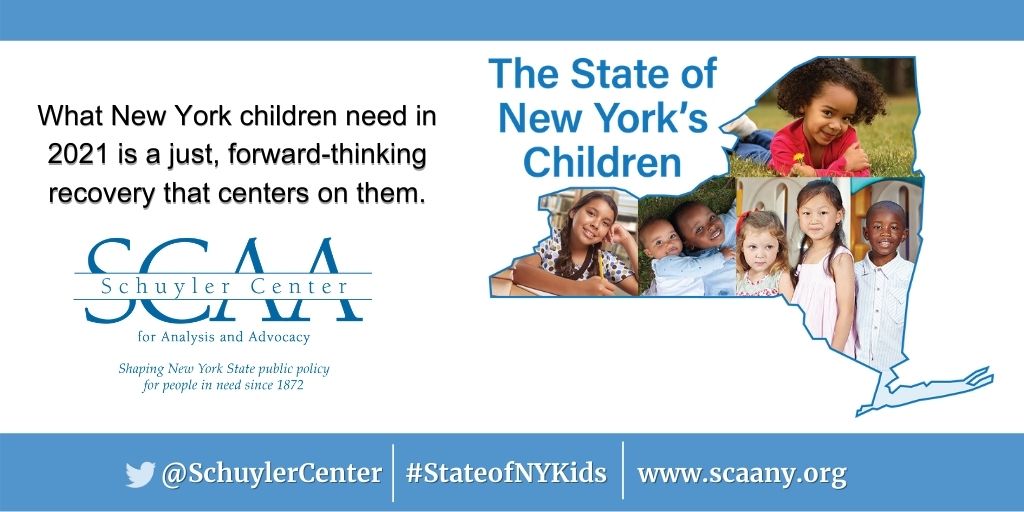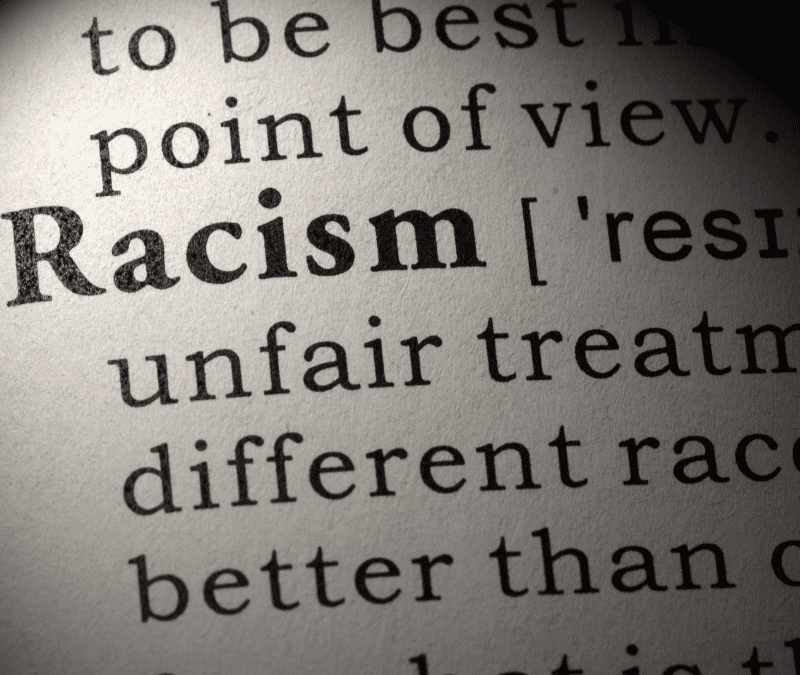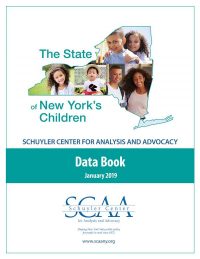
Schuyler Center Presents Data on State of New York Children
On January 14, 2021, Schuyler Center’s policy team shared data about the well-being of New York children and recommended policy strategies for building better foundations for all the state’s children at a State of New York’s Children Data Briefing. More than 200 people attended the virtual webinar including members of the NYS Legislature and State agencies, as well as policy advocates and other interested parties.
“As we all know, COVID-19 has and continues to have heartbreaking effects on the people of New York,” said Kate Breslin, President and CEO. “It has been particularly devastating for children, 36,000 of whom no longer have lost parents or caregivers. 1.5 million New York households sometimes or often do not have enough food. And New Yorkers of color and immigrants have borne the brunt of the pandemic, disproportionately falling gravely ill and dying from the virus.”
Schuyler Center’s policy team outlined significant challenges facing New York children and families, including the effects of poverty on children’s social, emotional, and cognitive well-being; the disproportionate representation of Black and brown children in the child welfare system and living in poverty, and the hardships caused by the high costs of and lack of access to high quality child care.
Dede Hill, Schuyler Center Director of Policy said, “All children need strong and economically stable stable families, healthy bodies and minds, safe homes and communities, and a sound education to thrive. We look forward to working with the Governor and Legislature this session to ensure children living in poverty have access to that foundation.”
Watch the webinar recording below. You can also view the presentation slideshow, the Data Book and our sources. If you’re on Twitter, feel free to amplify our message by following us at @SchuylerCenter and the hashtag #StateofNYKids!




























































Recent Comments